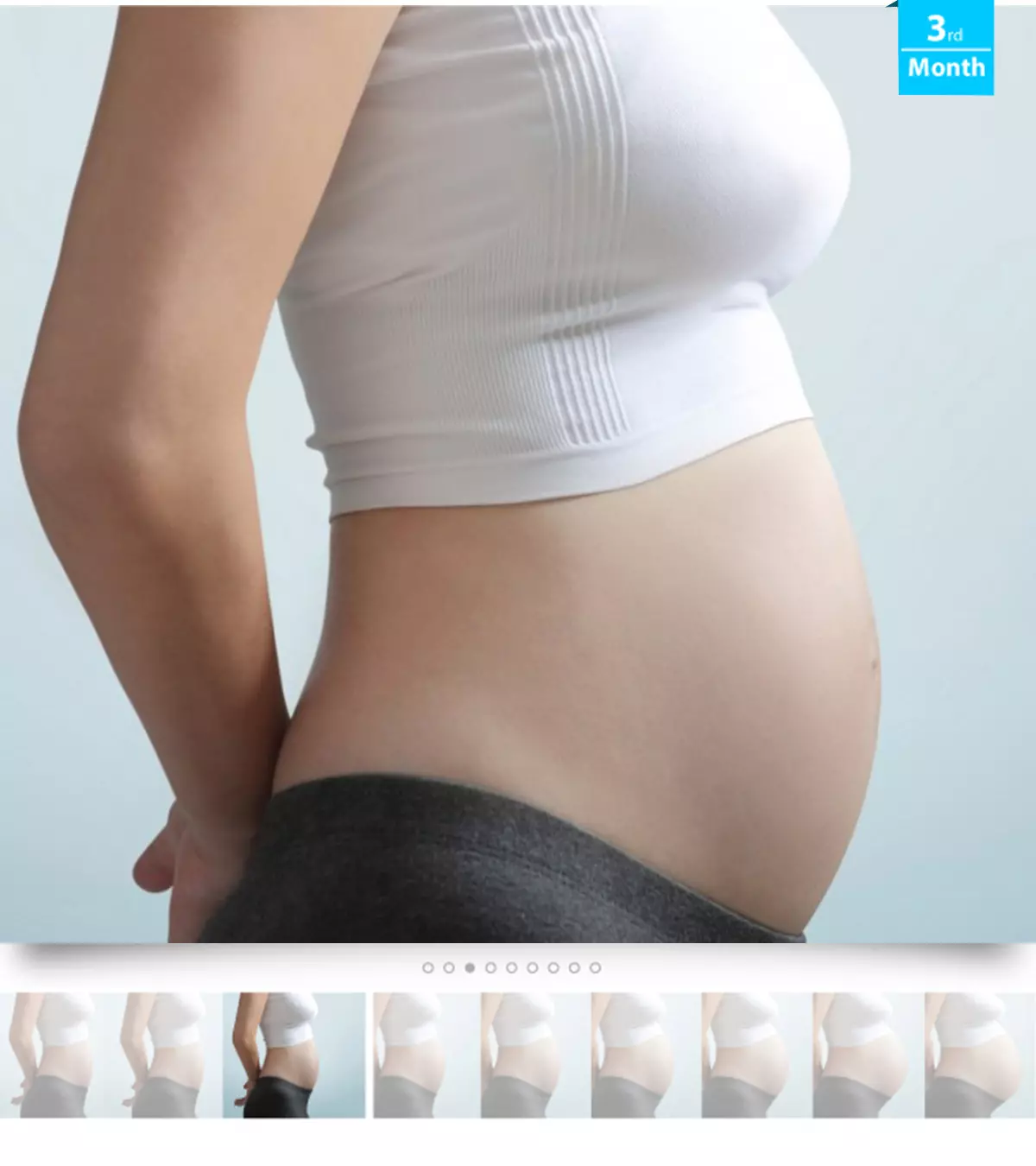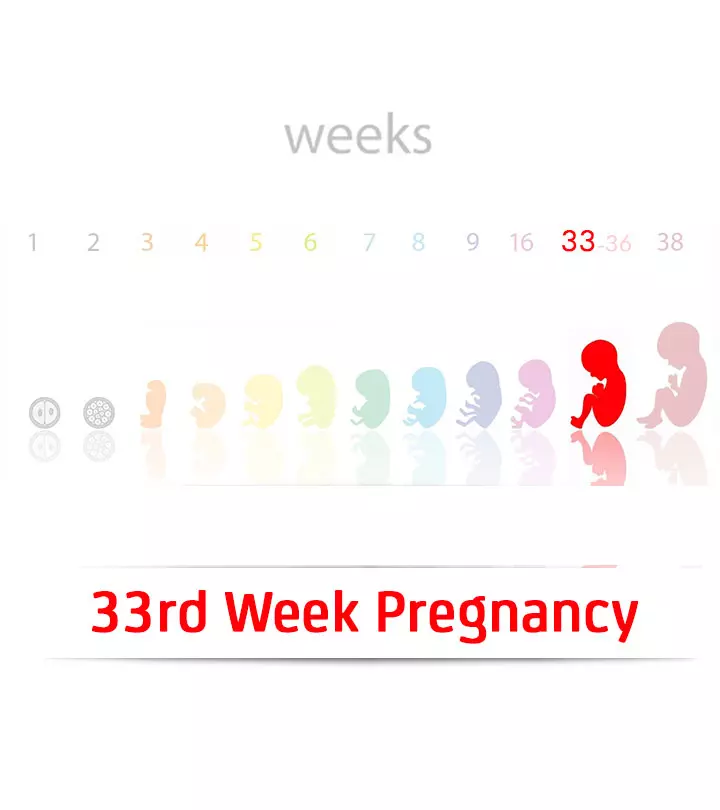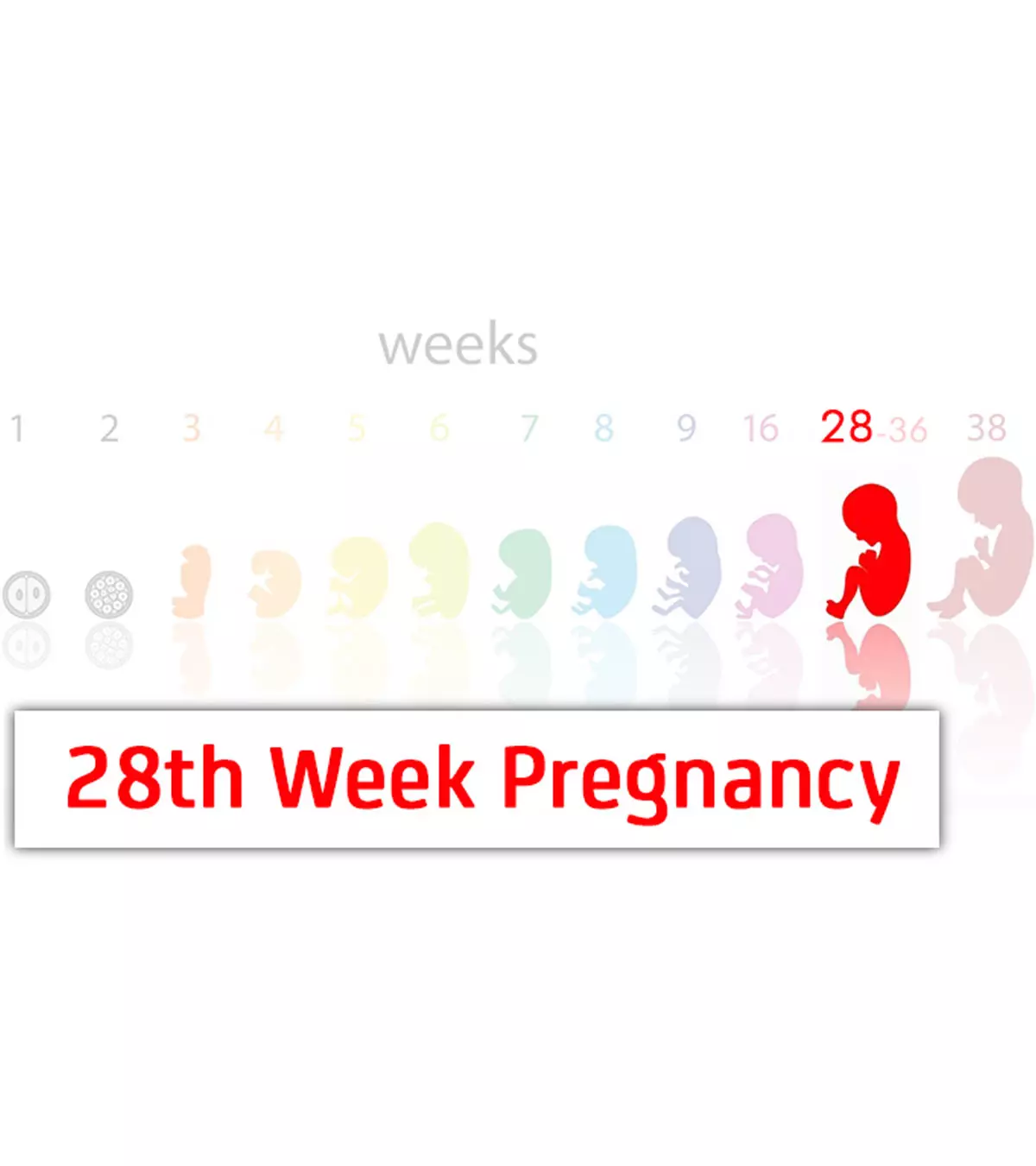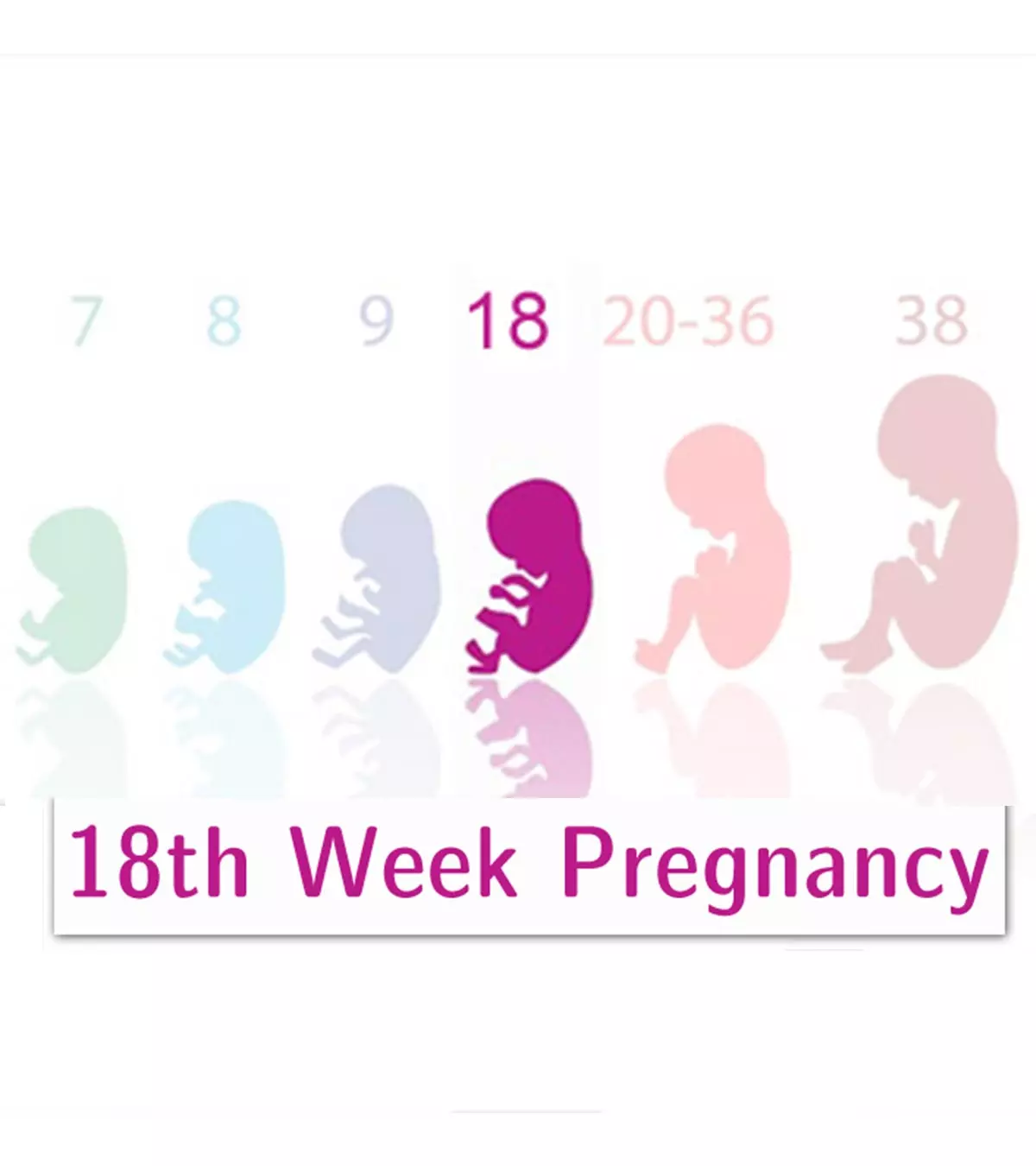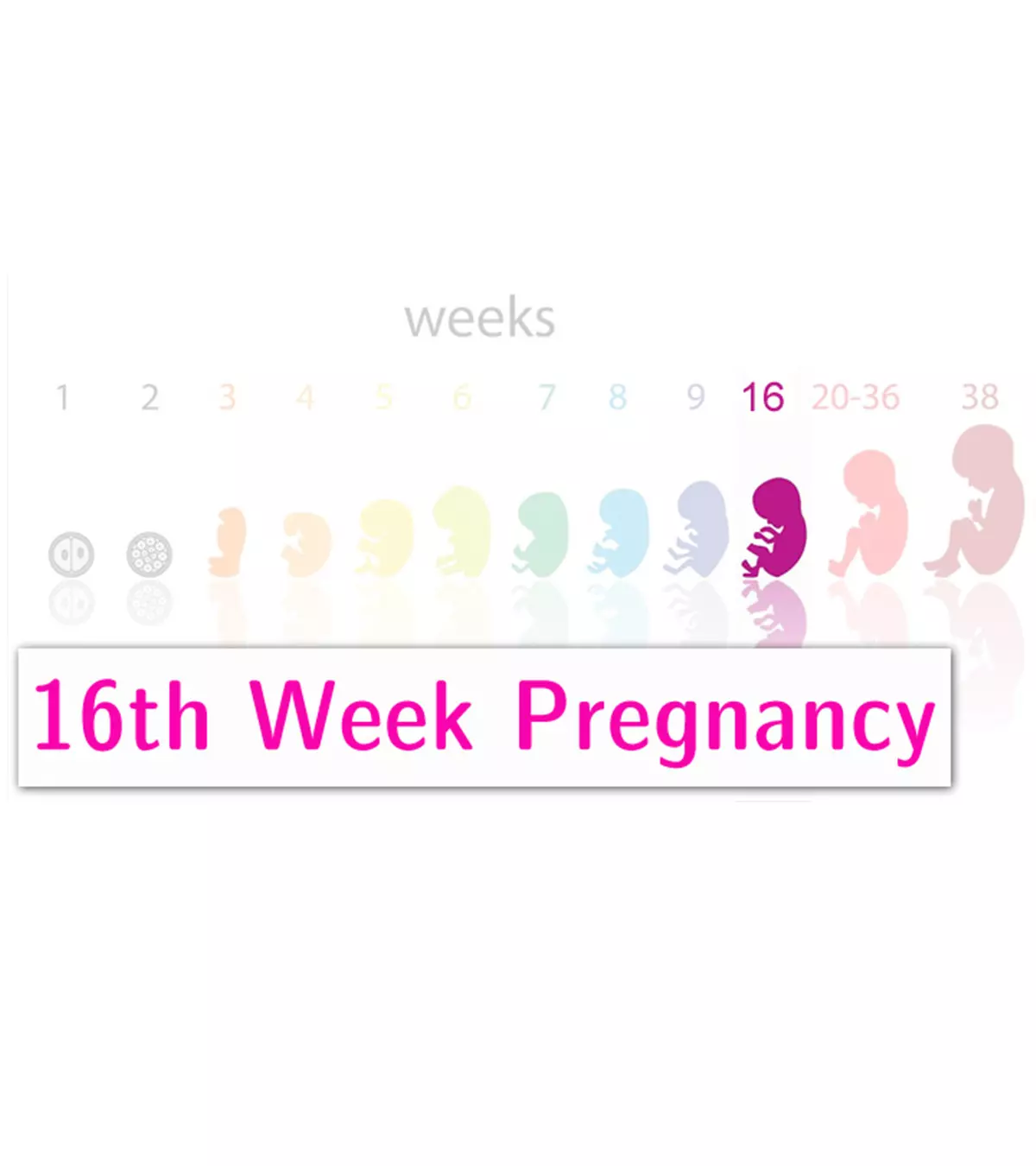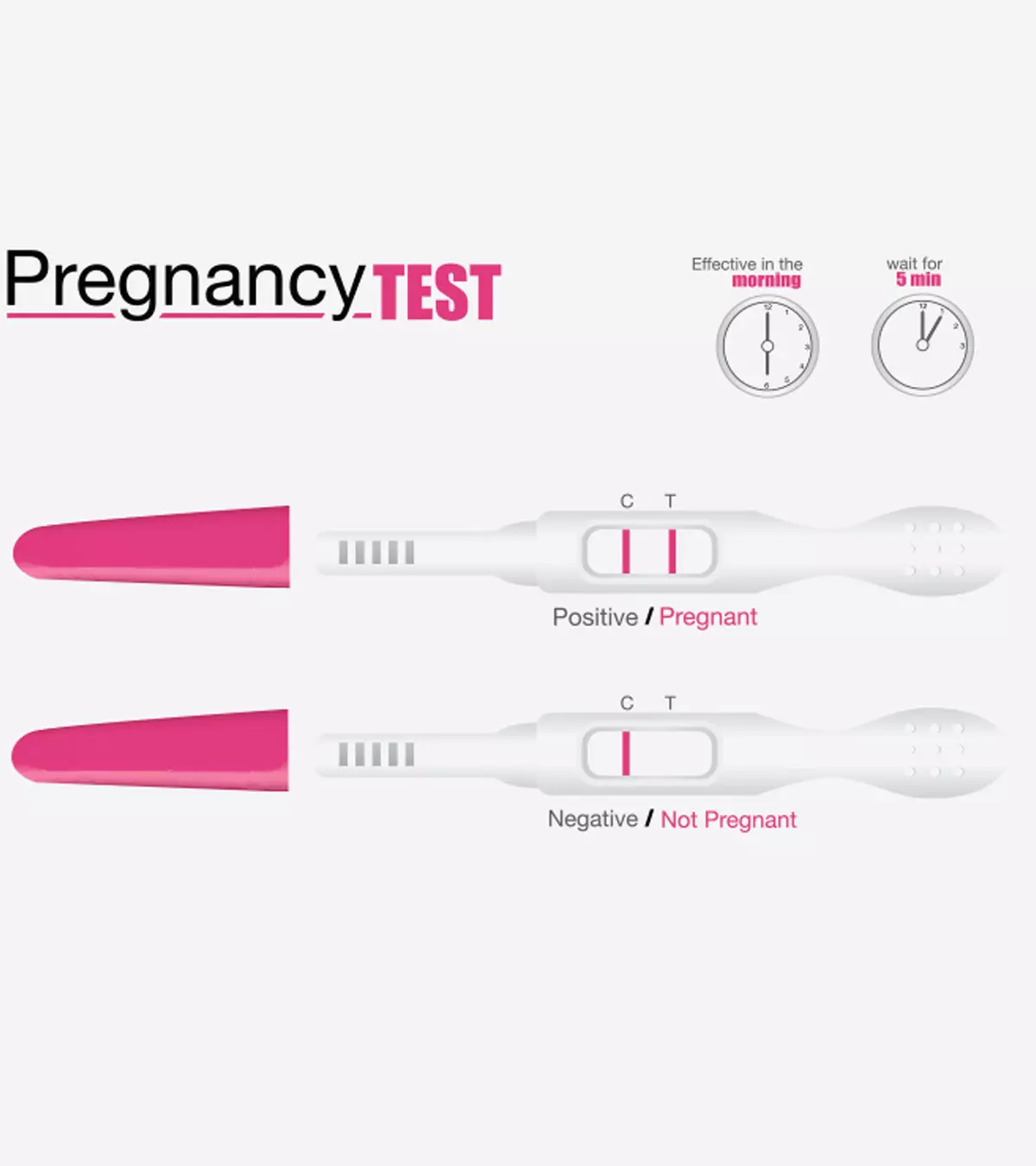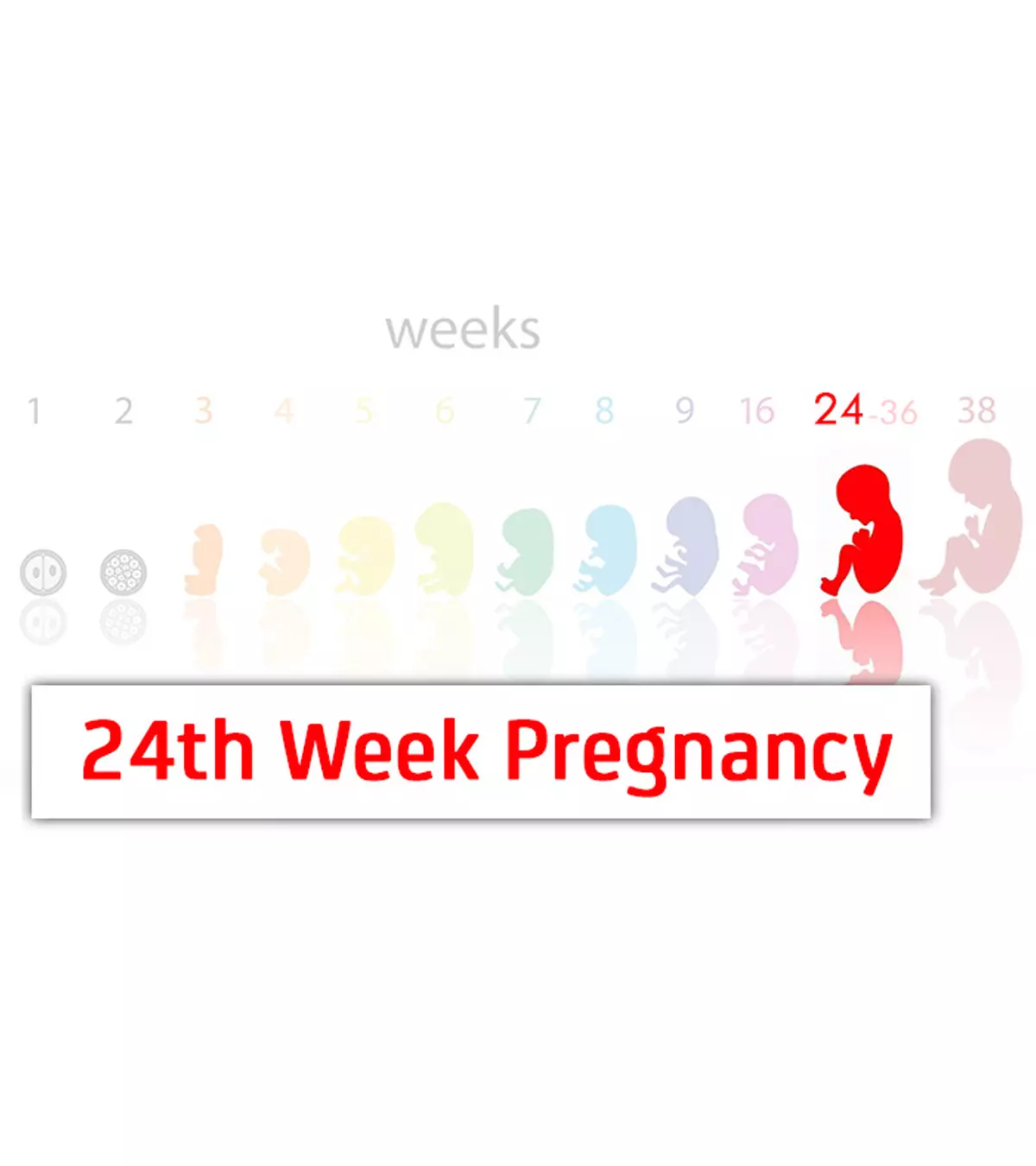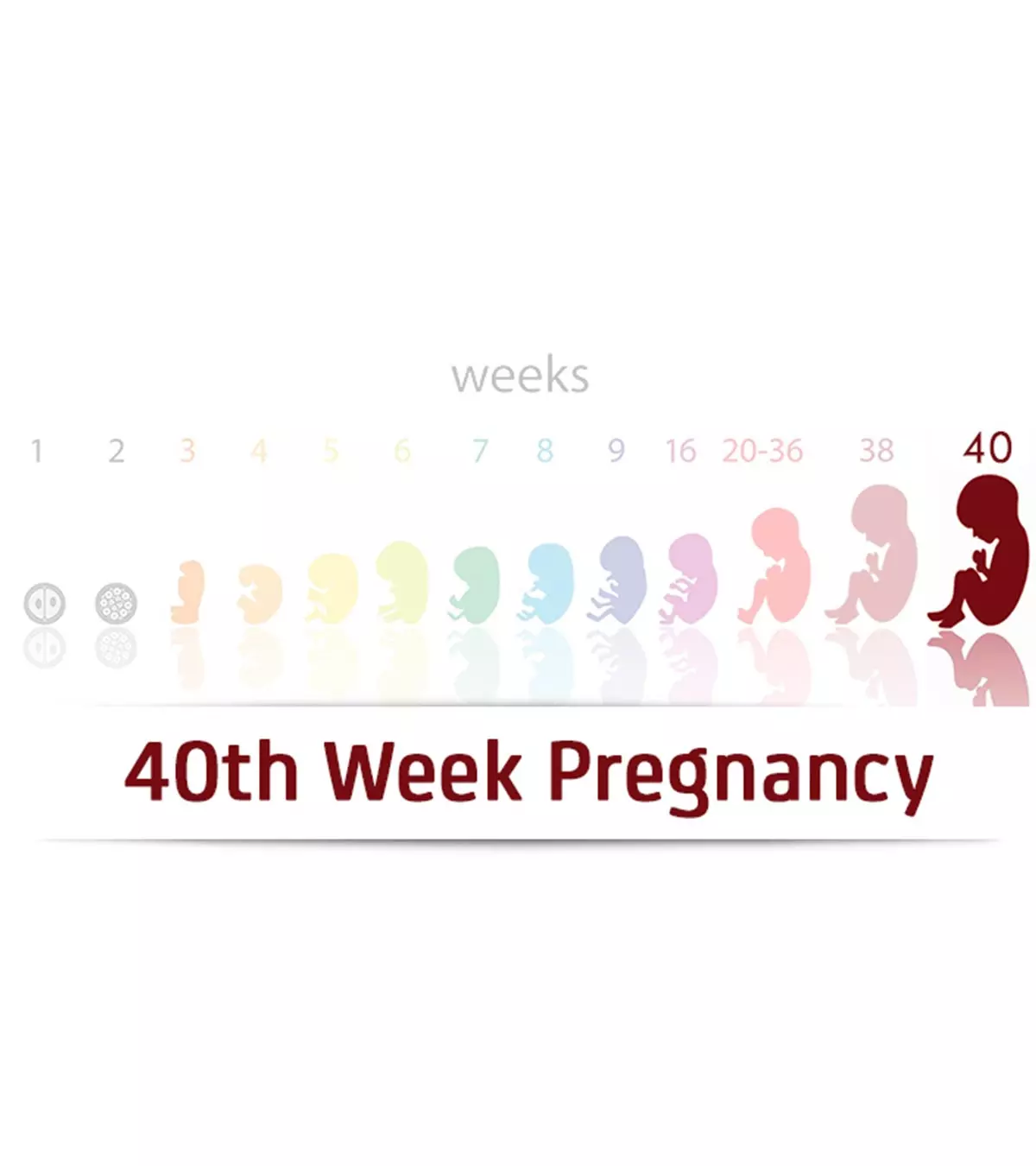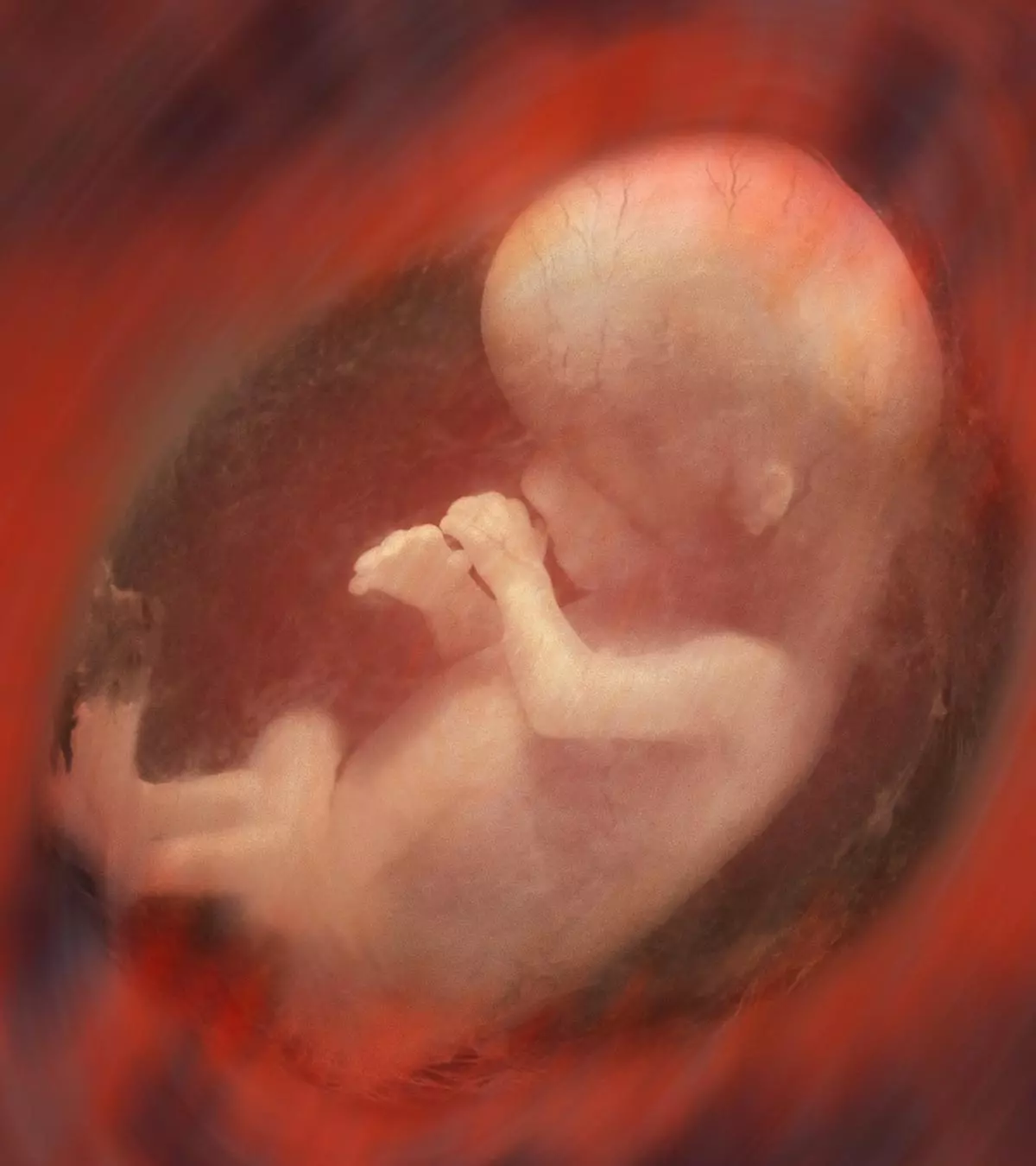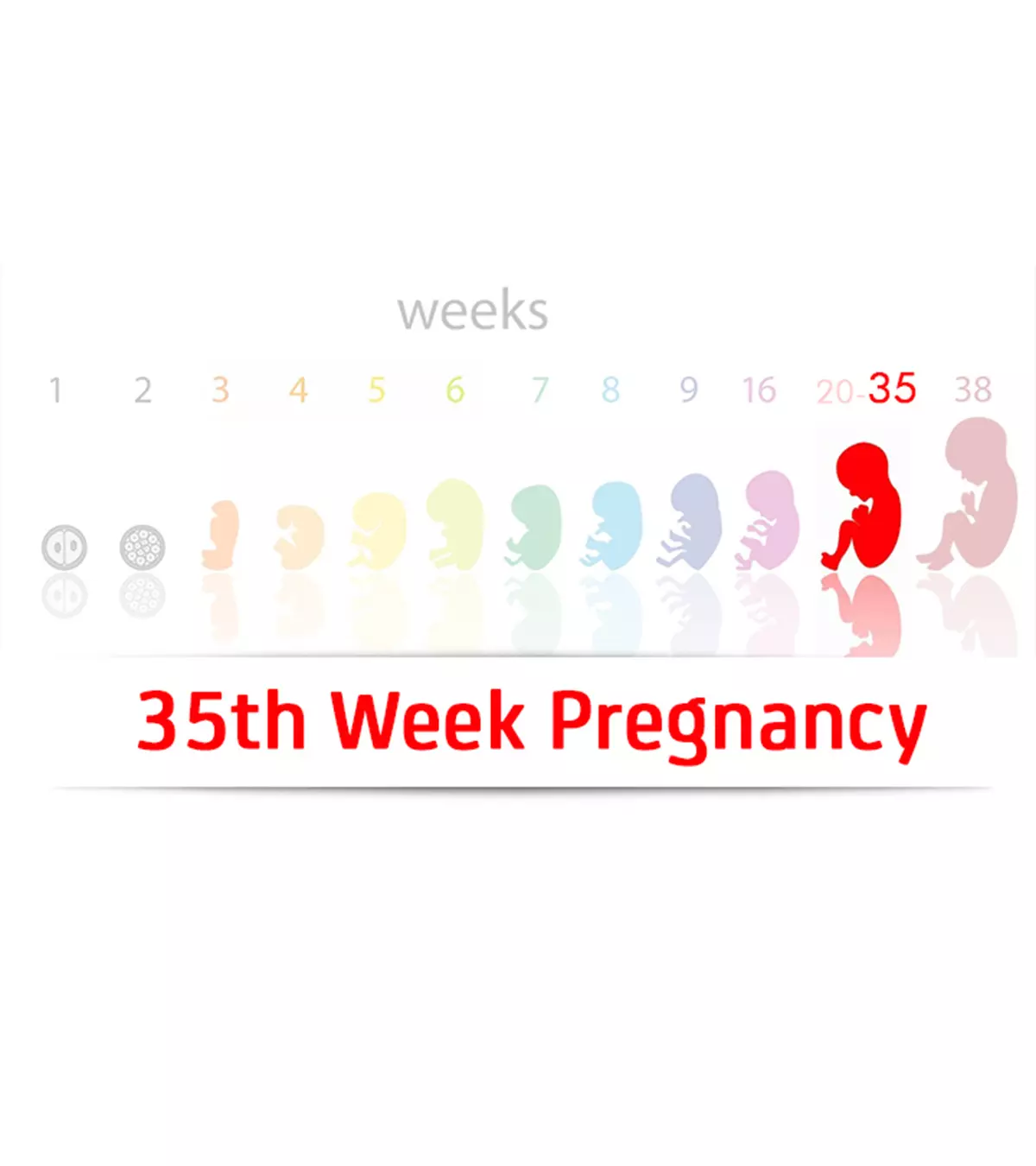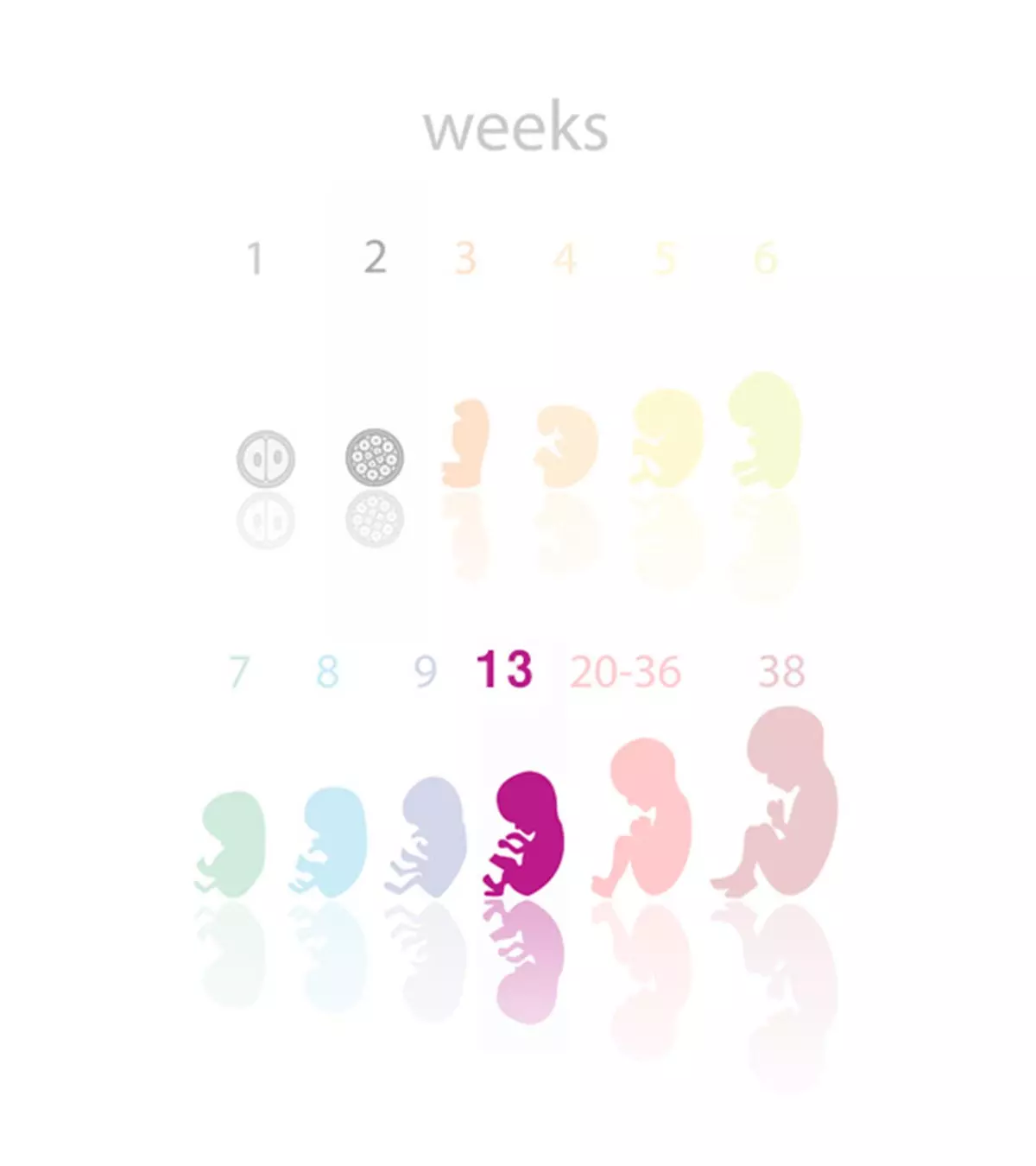
Image: Shutterstock
Key Pointers
- The baby is developing its face, eyelids, limbs, intestines, tooth buds, and genitals, and is currently the size of a peach.
- Cravings, indigestion, constipation, dizziness, increased vaginal discharge, and frequent urination are common symptoms that mothers may experience.
- Some physical and emotional changes include tender breasts, bigger areola, skin pigmentation, linea nigra, mood swings, and anxiety.
- Seek medical attention in case of pelvic pain, severe vomiting, fever, or reduced urination frequency.
How Many Months Pregnant Are You At 13 weeks?
At 13 weeks, you are three months pregnant and in the last week of the first trimester.
How Big Is Your Baby At 13 Weeks?
In the 13th week, the baby is about the size of a peach (1).. Babies usually measure around 2.91in (7.4cm) in length, and weigh around 0.81oz (23g)
Baby Development At 13 Weeks
Here is how the baby develops in this week of pregnancy:
| Body organs | Developments |
|---|---|
| Face (2) | Lips and nose fully formed. Fetus makes facial expressions |
| Eyelids (3) | Formed and closed to protect eyes, which are still developing |
| Arms | Growing; are long and thin |
| Hands | Can make a fist |
| Hair follicles (4) | Developing |
| Intestine | Growing into the abdomen, as an internal organ |
| Tooth buds | Developing |
| Genitals (5) | In boys, testes are formed inside the body and genitals are developing outside. In girls, ovaries are fully formed, and the clitoris is forming outside the body |
| Liver (6) | Secretes bile |
| Pancreas (7) | Starts producing insulin |
| Kidneys (8) | Starts producing urine, which is passed into the amniotic fluid |
 Quick fact
Quick factAs the baby changes, you will also experience specific symptoms of pregnancy this week.
What Symptoms Do You Experience In The 13th Week Of Pregnancy?
By this week, the morning sickness subsides(8), and you start feeling energetic. However, if you are carrying twins or multiple babies, then the morning sickness due to fluctuating pregnancy hormones may persist. Here are some other symptoms you will experience during the 13th week of pregnancy:
- Increased energy level, as the morning sickness comes to an end by the beginning of the second trimester.
- Food cravings/aversions due to hormonal fluctuations. You may even crave for certain foods and dislike others.

Image: Shutterstock
- Indigestion/constipation as the progesteroneiA female reproductive hormone that plays a vital role in menstruation, pregnancy, and breastfeeding. hormone relaxes the digestive tract, slackens the digestion process, and can also cause gas and bloating.
- Dizziness, due to reduced blood pressure, as more blood is pumped to the fetus.
- The hormonal changes increase the vaginal discharge or mucus that prevents bacteria from traveling to the uterus.
- The urge to urinate more frequently increases due to hormonal changes.

Image: Shutterstock
- Reduced sense of smell and aversion to certain smells due to a change in the hormonal levels.
Along with these, you will also notice physical and emotional changes.
Changes In The Body At 13 Weeks
Here are some physical and emotional changes that you might experience during this week:
Visible blue veins on breast and legs due to increased blood flow (9).
Increased sex drive. The cervical mucus helps prevent any infection. This allows you to have a safe, intimate time during this week.
- Pregnant belly might not be visible in first-time moms, but may be evident in second-time moms.
- Tender and sore breasts
- Bigger areola and nipples
- Skin pigmentation
- Linea nigraiA dark line developing on the abdomen during pregnancy, extending from the belly button to the pelvic region.

Image: Shutterstock
- Mood swings
- Anxiety
Natalie Bennett, a mother of three and vlogger, shares the physical changes she has been experiencing during the 13th week of pregnancy. She says, “I gained a pound or so since the last time I weighed in… I am 29 and a half inches around the widest part of my tummy; it just continues to feel like growing. And, even though it might not be showing in inches, my tummy feels tight.”
She also shares about a new symptom she has been experiencing this week. She says, “A new symptom I feel these days is heartburn (with mealtime). I feel a burning in my chest and upper stomach and also a little bit of acid reflux, but not too bad (i).”
 Point to consider
Point to considerWhen To Call The Doctor
If you notice any of the following symptoms, then call the doctor right away (9):
- Pelvic pain other than cramping

Image: Shutterstock
- Severe vomiting
- Feeling unconscious
- Fever (100.4 degrees or higher)
- Less frequent urination or dark colored urine
If everything is normal, a regular OB/GYN checkup should do.
Your OB/GYN Visit
These are the following things you can expect during your OB visit:
- Blood pressure
- Keep a check for weight gain or weight loss
- Combined fetal screening test evaluates the risk of chromosomal abnormalities in the baby or high-risk pregnancy. It includes an ultrasound scan along with a blood test (10).
- Ultrasound for nuchal translucency is done to evaluate the thickness of the fluid behind the baby’s neck. The thicker the fluid, the greater is the risk of Down syndrome in the baby.
- Gestational age and nasal bone determination to visualize the fetal development. The nasal bone may not be properly visible in babies with Down syndrome.
- A blood test measures the level of proteins in the blood sample.

Image: Shutterstock
- PAPP-A, a placental protein produced during early pregnancy with an unsatisfactory result indicates the risk of chromosomal abnormalities.
- An abnormality in the level of this placental protein human chorionic gonadotropin indicates the risk of chromosomal abnormality.
The risk of Trisomy 18iCondition marked by genetic duplication of chromosome 18 in an individual, leading to severe developmental delays. and Down syndromeiChromosomal disorder (trisomy 21) characterized by reduced muscle tone, delayed physical and intellectual development. can be assessed from the combined results of these tests. In the case of abnormal test results, the doctor recommends additional testing like ultrasounds, amniocentesisiA prenatal test used to evaluate genetic and health abnormalities in the fetus using cells from the amniotic fluid. , cell-free fetal DNA, or chorionic villus sampling.
Tips For Mom-to-be
- Drink plenty of water and stay hydrated to get rid of fatigue.
- Eat home cooked food and follow a healthy lifestyle and nutrition plan.
- Avoid raw, undercooked, and deep-fried foods.
- Avoid fish such as king mackerel, shark, tilefish, or swordfish that are high in mercury.
- Carry snacks and fruits to the office to munch on in regular breaks.
- Avoid drinking alcohol and smoking.
- Do not take an excess of caffeine.
- Do not forget to take prenatal vitamins and supplements such as iron and folic acid.
- Indulge in mild exercises like walking to feel the burst of energy level. Pregnancy yoga also helps tone your pelvic muscles.
- Keep all stress and fears at bay in anticipation of childbirth preparation.
- Get enough rest.
- Use moisturizers to prevent dry and itchy skin.
- Avoid taking any over-the-counter medicines without the doctor’s permission.
- Wear breathable and loose clothes, nursing bras to support the breasts, and comfortable footwear.
- Spend quality time with your near and dear ones.
Talk to your partner about how he can help you.
Tips For Dad-to-be
Your partner can offer support to you by:
- Sharing the household responsibilities.
- Accompanying you during the workouts.
- Going to the hospital visits with you.
- Creating a pleasant environment at home.
- Making you feel refreshed by planning a day out.
- Planning maternal shopping and purchasing maternity clothes.
- Giving you a good neck and foot massage.
- Spending quality time with you.
Frequently Asked Questions
1. What are the risks associated with pregnancy at 13 weeks?
Bleeding, preterm labor, gestational hypertension or preeclampsia, and urinary tract infections are some risks at 13 weeks of gestation (12).
2. How much weight should I have gained by 13 weeks pregnant?
How much weight gain a pregnant woman should gain depends on factors such as her overall health and pre-pregnancy BMI. According to experts, expectant women with normal pre-pregnancy BMI should gain half to one pound of weight every week during the second trimester. Speak to your healthcare provider about your weight gain requirement based on your health and other factors (13).
3. What exercises are safe to do during the second trimester of pregnancy?
Pregnant women need at least around 150 minutes of moderate-intensity aerobic activity daily. These activities can include exercises such as yoga, brisk walks, swimming, strength training using weights of comfortable measure, and Kegel exercises (14). However, seek guidance from a professional trainer to plan a risk-free exercise routine suitable for your individual needs.
4. What are the odds of miscarriage at 13 weeks?
The odds of miscarriage reduce as the mother approaches the second trimester. However, some risk still prevails. According to experts, the risk for miscarriage between 13 and 19th week of gestation is 1-5% (15).
5. Do you have a bump at 13 weeks pregnant?
Around 13 weeks of pregnancy, the uterus begins to rise out of the pelvic cavity. Hence, a small bump may be visible. However, it is important to note that the timing and visibility of a baby bump can vary based on factors such as the mother’s body type and uterus position (1).
If you have been tracking the progression of your pregnancy week by week, you may notice decreased morning sickness symptoms and increased energy by the end of the first trimester or when you are 13 weeks pregnant. However, food cravings, indigestion, vaginal discharge, and urinary frequency may increase. You should seek immediate medical help if you develop fever, pelvic pain, or urinary changes. The prenatal checkup includes tests to predict chromosomal abnormalities, nuchal translucency, etc. Ensure you take a balanced diet, stay hydrated, and exercise moderately. Would-be-dads may also pitch their much-needed help to comfort mamas.
Infographic: Recommended Tests During The 13th Week Prenatal Check
The 13th week of pregnancy means the last week of the first trimester. You will have a prenatal check during this phase, where your doctor may recommend a few tests to determine maternal and fetal health. The infographic below lists all the standard tests and exams your OB-GYN may recommend during this prenatal visit.
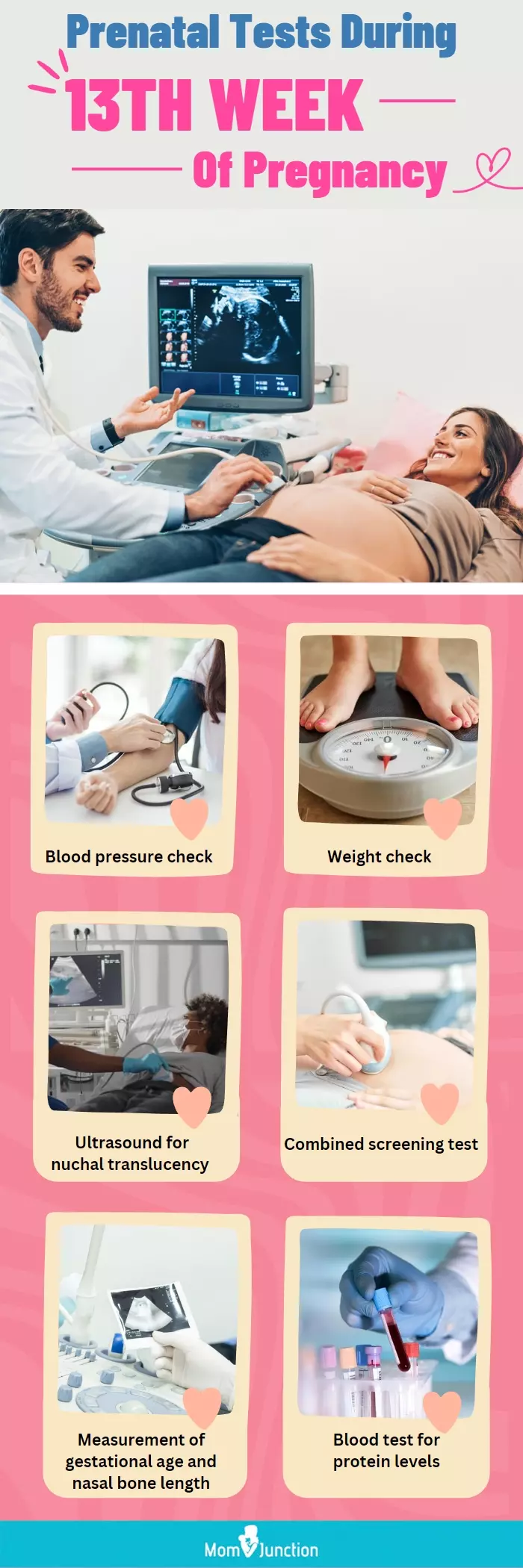
Illustration: Momjunction Design Team
Illustration: 13th Weeks Pregnant: Symptoms And Baby Development
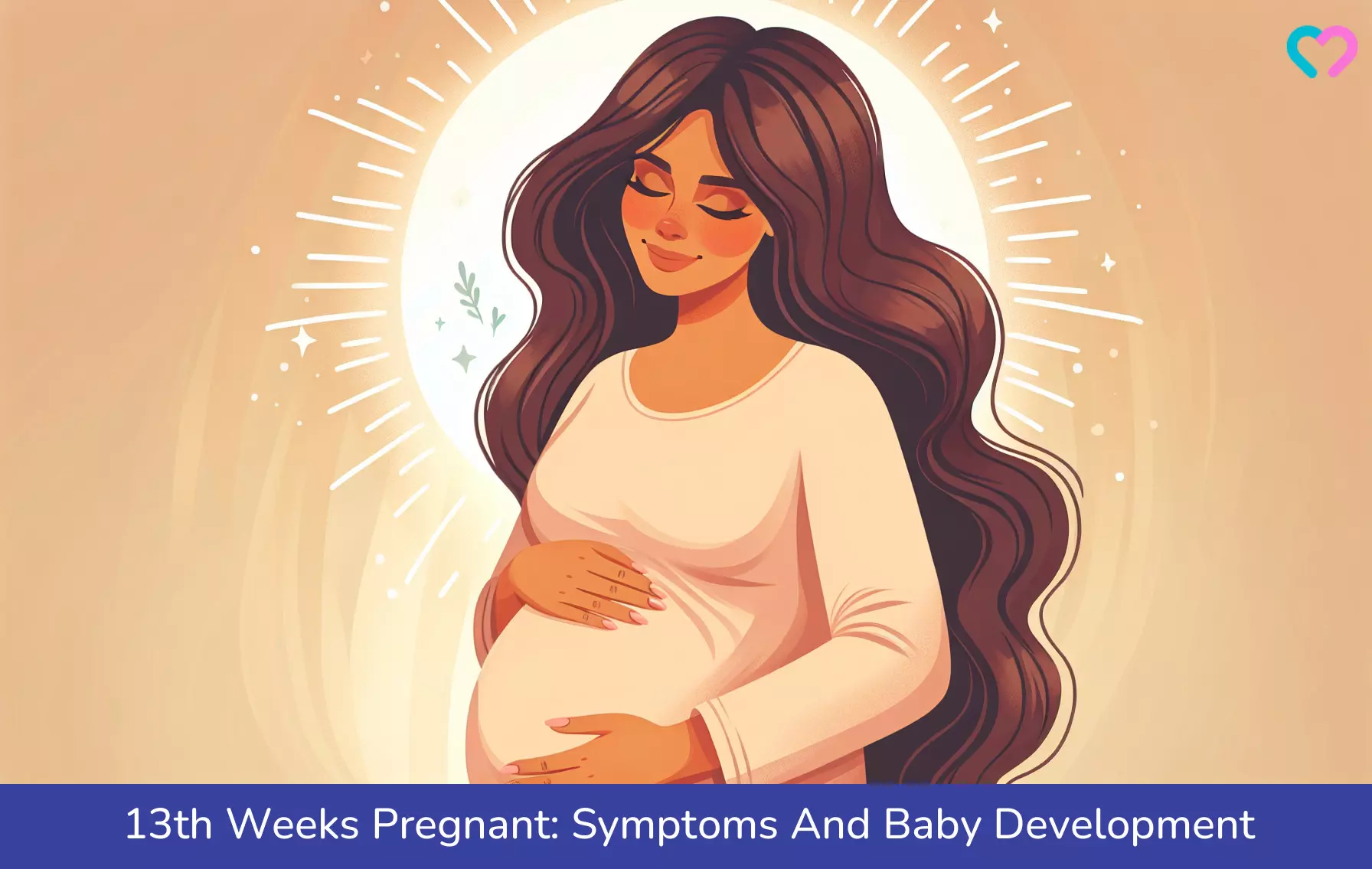
Image: Dall·E/MomJunction Design Team
Pregnancy Week 13 is an exciting time! Learn more about your baby’s development and what to expect from this interesting and informative video.
Personal Experience: Source
MomJunction articles include first-hand experiences to provide you with better insights through real-life narratives. Here are the sources of personal accounts referenced in this article.
i. 13 Weeks pregnant | When does the 2nd trimester start.https://www.youtube.com/watch?feature=shared&v=UVyjWD4aeyg
References
- 13 weeks pregnant NHS.
https://www.nhs.uk/start-for-life/pregnancy/week-by-week-guide-to-pregnancy/2nd-trimester/week-13/ - Fetal development Embryology.
https://embryology.med.unsw.edu.au/embryology/index.php/Fetal_Development - Prenatal Summary The Endowment for HUman Development.
https://www.ehd.org/prenatal-summary.php - Hatem A Tawfik et al.; (2016); Embryologic and fetal development of the human eyelid.
https://www.ncbi.nlm.nih.gov/pmc/articles/PMC5102278/ - Pregnancy week by week Due date calculator.
https://www.duedatecalculator.org/pregnancy-week-by-week/ - Boy or girl? The difficulties of early gender prediction UT Southwestern Medical Center.
https://utswmed.org/medblog/gender-prediction/ - Antonella Giancotti et al.; (2019); Functions and the Emerging Role of the Foetal Liver into Regenerative Medicine.
https://www.ncbi.nlm.nih.gov/pmc/articles/PMC6721721/ - 13 weeks pregnant APA.
https://americanpregnancy.org/healthy-pregnancy/week-by-week/13-weeks-pregnant/ - Varicose veins during pregnancy PennMedicine.
https://www.pennmedicine.org/updates/blogs/heart-and-vascular-blog/2018/june/varicose-veins-during-pregnancy - Warning signs during pregnancy Pregnancy Birth and baby.
https://www.pregnancybirthbaby.org.au/warning-signs-during-pregnancy - Common tests during pregnancy John Hopkins Medicine.
https://www.hopkinsmedicine.org/health/wellness-and-prevention/common-tests-during-pregnancy - Risks of Complication at Every Stage of Pregnancy
https://www.birthinjuryhelpcenter.org/birth-injuries/prenatal-problems/complication-pregnant/ - How much weight should I gain during pregnancy?; American College of Obstetricians and Gynecologists
https://www.acog.org/womens-health/experts-and-stories/ask-acog/how-much-weight-should-i-gain-during-pregnancy - How to Exercise Safely During Pregnancy; Hospital for Special Surgery
https://www.hss.edu/article_exercise-during-pregnancy.asp - Miscarriage; Cleveland Clinic
https://my.clevelandclinic.org/health/diseases/9688-miscarriage
Community Experiences
Join the conversation and become a part of our nurturing community! Share your stories, experiences, and insights to connect with fellow parents.
Read full bio of Dr. Richa Hatila Singh
Read full bio of Sakshi Mishra
Read full bio of Rebecca Malachi
Read full bio of Aneesha Amonz





